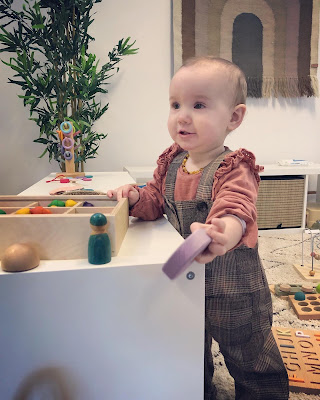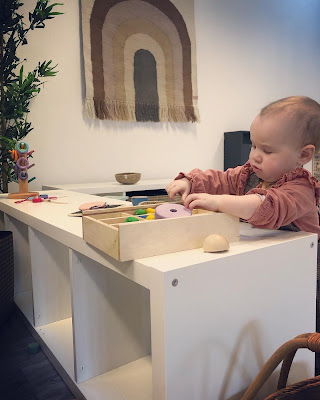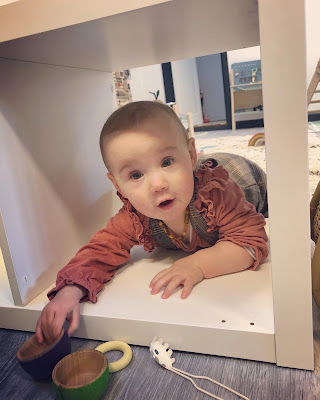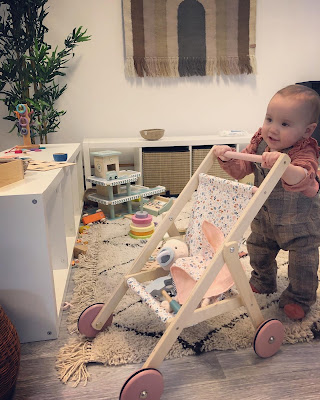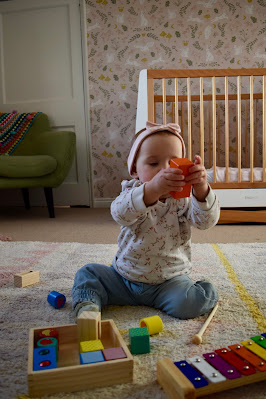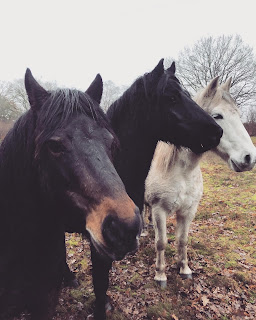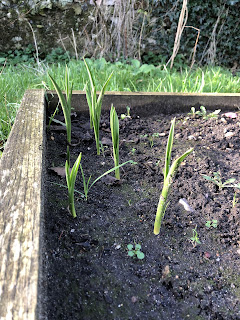*I wasnt asked to share this post, we just enjoyed it so much that I wanted to share with other local mums who may be looking for somewhere to take their little ones.
Saturday, 15 January 2022
Out and About with Bea
Friday, 14 January 2022
How to Raise a Compassionate Child
Compassion not only makes the world a brighter place but can also have tremendous health benefits and help you to make long-lasting friendships too.
By definition, it is the ability to empathise and the desire to go out of your way to help others. We have teamed up with a private school in Cambridgeshire to share 5 ways that you can raise a compassionate child.
Being Understanding and Empathetic
Lesson one for teaching compassion is developing emotional intelligence. This involves building your child’s understanding of emotions and body language which can help them to identify when others are sad or distressed in order to help them. You can do this by creating your own flipbook of emotions or pointing to characters in TV shows.
Avoid Arguing Infront of Your Child
Conflict resolution is a key skill for being compassionate. It’s not until we’re aggravated or are faced with confrontation that we often say things that we regret. Knowing how to do so calmly can help your child to avoid landing in similar situations, avoid trouble and gain the respect of others.
To do this, it’s important to not argue in the presence of your child and teach them how to manage stress and difficult emotions correctly using tools such as mindfulness.
Teach Self-Care and Compassion
Showing self-love is just as important and can help your child to maintain good health and mental wellbeing.
There are many ways that you can explore this with your child with one being role play by demonstrating how you take care and look after yourself.
Speak Kindly to Yourself
Self-talk looks at how we talk to ourselves and often this can be in a more critical light than the way that we talk to others.
Not only can this lead to poor mental health but doing so in front of your child can result in them developing similar behaviours too.
*Sponsored post
Thursday, 13 January 2022
Is My Child Ready for Nursery?
This is a question asked by many working parents as they approach the end of their maternity/paternity leave.
While the age to receive free government, funded childcare is 3 to 4 years old, many nurseries in the UK cater to children as young as 3 months old.
I have teamed up with a day nursery in Kew to help you decide whether or not your child is ready for nursery.
Sending Babies to Nursery
In recent years women have been returning to work earlier than before following childbirth which many nurseries have been accommodating too.
For most the care that they provide starts from 3 months of age. To ensure the safety and wellbeing of each child there is a ratio that is used to ensure that each nursery is equipped with the right number of practitioners.
For babies under 24 months old, this is 1 adult for every 3 babies.
Toddlers Between the Ages of 1 and 2
The number of parents sending their toddlers to nursery at this age has grown threefold since 1981 with ¾ of parents now sending their toddlers to nursery after giving birth.
This movement was investigated by Cambridge University which found that the stress hormone cortisol was double in toddlers of this age 9 days after starting nursery.
The study found that these levels stayed the same after 5 months despite the toddlers showing no physical signs of stress.
3 Years of Age
This is the age where your child will be able to receive 10 free hours of childcare from the government and has proven to be the best age to send your child to nursery.
Studies have found that sending children to nursery either before or after this point can hinder development with those that start at 3 showing the best performance at school.
*Sponsored post
Tuesday, 11 January 2022
Teaching Your Child to Use the Internet Safely
The dawn of the internet has brought about many great opportunities for children but also comes with lurking threats to be aware of. Internet safety is important to teach children and has several lessons, all of which a private school in Bristol shares more on below.
Screen Time
Screens can be awful for the eyes and prolonged time on social media platforms can result in worsened mental health as studies report. The cut-off time that they suggest is 3.5 hours which going beyond can result in serious consequences.
This can be hard to actually implement in the real world but can be made possible through apps and device restrictions. These can all force-shut applications, rendering them useless and helping your child to stay away.
Trolling
The internet can be a nasty place with anyone able to share their thoughts and opinions regardless of what they are online. In recent years social media has gotten better to allow for censoring of comments containing certain words and increased privacy.
This is something that you can teach your child about through promoting self-love, acceptance, and how to use these tools.
Blocking Inappropriate Content
Blocking pop-ups and inappropriate websites can help you to keep a careful eye on what your child views online without having to watch their every move.
This can also be done by placing adult restrictions on the internet via their phone network or your internet provider.
Revealing Personal Information
Sharing information online unfortunately comes at the risk of falling into the wrong hands. It can be used for identity theft to trick other people by “catfishing” or for other more sinister reasons.
To protect your child’s information, encourage them to opt for a private account and to not add strangers or others claiming to go to a nearby school.
*sponsored post
Monday, 10 January 2022
Exploring Gratitude with Your Child
Letting others know that you’re appreciative of them can help you to develop and maintain strong relationships and improve overall life satisfaction.
It is thought that this can help to boost academic achievement in children by helping them to feel connected to the world around them and be more confident.
I have teamed up with a boy's school in London to share a few ways that you can explore gratitude with your child.
A Gratitude Jar
This is a jar that your child can use to reflect on all of the things that they have to be thankful for by writing them down and storing them in the jar.
This will help to make exercising gratitude a part of their daily routine, allowing them to feel calmer, happier, and more content.
This can be a visual reminder for your child during difficult times that they’re not alone and have so many loving people around them.
The Act of Saying Thank You
The simplest way to demonstrate gratitude and thankfulness is through saying thank you.
Getting your child in the habit of saying thank you will not only help them to reflect on the kind actions of others but will also help them to become polite and respectful.
Making Handmade Gifts
A handmade gift is a lovely way to give back to those that have shown support and care.
Especially as they are handmade and from the heart.
This is a fun and engaging way to teach your child about gratitude which doesn't need to involve many resources as gifts can include thank you cards and drawings.
Return the Favour
Lastly, you can teach your child about giving back and helping others out in times of need.
This might be to offer a similar favour like lending stationery or helping a friend to find something that they have lost.
*Sponsored post
Sunday, 9 January 2022
AD // Sensory Fun with Jaques Of London
Tuesday, 4 January 2022
Steam Trains, Pretty Dresses and Woodland walks.
 |
| Our yearly Christmas PJ photo in front of the tree. |
 |
| Christmas Day dress from Little Bird by Jools Oliver |
 |
| This lovely Boden dress was a Christmas present. |
 |
| Last but not least this was from Monsoon. |
 |
| Being a tree! |
-
Leading pork pie manufacturers, Pork Farms are one step closer to finding their Board Games Champion with the announcement of their semi-f...
-
Ru has taken to potty training like a pro! He's had hardly any accidents and is no longer using nappies during the day. I sta...
-
Life skills are the things we all use to help us navigate everyday experiences. These are things your child is going to have to learn all ...

